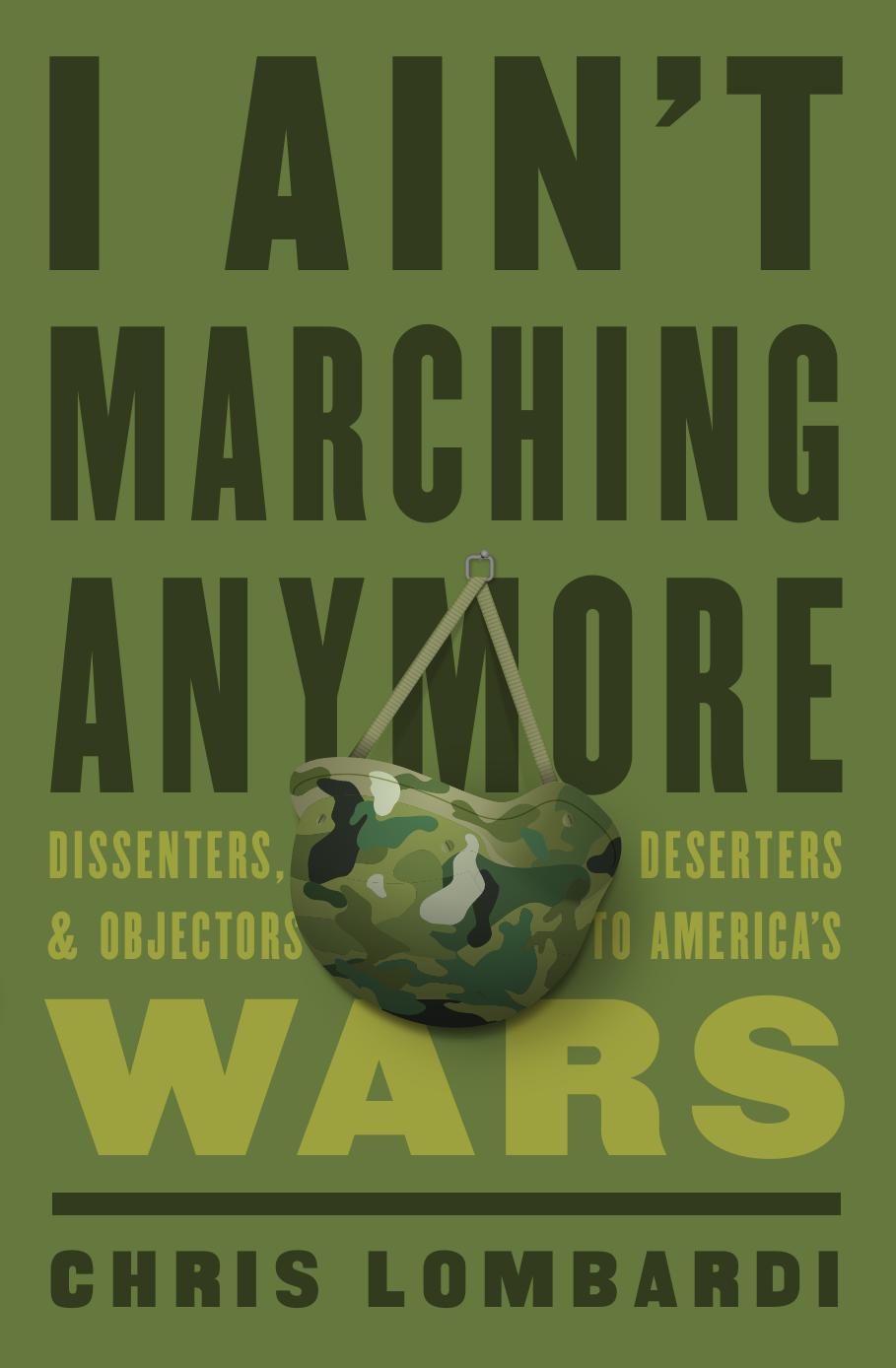I Ain't Marching Anymore by Chris Lombardi

Author:Chris Lombardi
Language: eng
Format: epub, pdf
Publisher: The New Press
Published: 2020-02-14T16:00:00+00:00
At the end of 1971, Paul Cox was back at Camp Lejeune. After three weeks, Vietnam still laced his dreams, the spring firmly becoming North Carolinaâs patented hundred-degree summer, the heat mandating a slower pace than the adrenalin still in his system. All the Marines in the reception unit were similarly wired and sullen by turns, and the bunk was flooded with underground GI newspapers.
Why didnât he see these when he was in-country? No matter: the crew around him was now promising to help Cox start a new one. The baseâs first, Head On, had been launched in mid-1969, a few months before an on-base riot prompted congressional investigations of racism at Lejeune; its replacement, On Korps, had lasted only long enough for the arrest and / or transfer of the Marine officers who edited it. There was still lots to cover, between the all-Black Council of Concerned Marines and continued command retaliation, which ranged from âreaction forcesâ armed with tear gas to personnel action like that which had ended the former editorâs career.
GI newspapers and soldier-activism had a famously dynamic relationship: reporting on the unrest unfurled more. Cox paged through a big, thick hippie lifestyle handbook to lists of anti-war groups, coffeehouses, and the U.S. Servicemanâs Fund. A fistful of Dexedrine in one hand and a pen in the other, he stayed up all night, writing letters to every single address. The next morning he drove north to Fayetteville, eighty-seven miles away, to the Haymarket Square Coffeehouse at the Fayetteville Quaker House.
The small building was relatively new, the previous coffeehouse having been torched two years earlier.53 Its theater-cum-hangout space bustled; a few months earlier, Jane Fonda and Donald Sutherland had brought F.T.A. (Fuck / Free the Army!), a variety show not unlike Laugh-In, to the coffeehouseâs small stage. Now shaggy guys cut pieces of cake and poured cups of coffee from a stained percolator, or sat around ramshackle tables with GIs. The latter were out of uniform, but easily recognized from the razor-cut heads, the weariness. Cox knew that look. Stacks of Fort Braggâs GI paper, Bragg Briefs, filled one of the tables.
The coffeehouseâs contact, Sergeant Lee Sayer, was nearly as tall as Cox, his grin far wider. He told Cox that rich people all over the country would help, not just Hollywood types. The printer of Bragg Briefs could do Lejeuneâs, if Cox drove to Durham with the cash. First, of course, they had to go back and write something. They already had the name, RAGE. The first purchase Cox made after that meeting was a nice IBM Selectric with two type balls, the best he could afford.
Over the next eighteen months, Cox would ensure that the paper was complete, funny, and spread everywhereâincluding in town, where he would hand it out and make sure it was in the new radical bookstore, United We Stand, next to the Malcolm X books. Each copy of RAGE was a proud 11 Ã 17 broadsheet.
The team put it together in the
Download
This site does not store any files on its server. We only index and link to content provided by other sites. Please contact the content providers to delete copyright contents if any and email us, we'll remove relevant links or contents immediately.
| Africa | Americas |
| Arctic & Antarctica | Asia |
| Australia & Oceania | Europe |
| Middle East | Russia |
| United States | World |
| Ancient Civilizations | Military |
| Historical Study & Educational Resources |
The Dawn of Everything by David Graeber & David Wengrow(1688)
The Bomber Mafia by Malcolm Gladwell(1618)
Facing the Mountain by Daniel James Brown(1542)
Submerged Prehistory by Benjamin Jonathan; & Clive Bonsall & Catriona Pickard & Anders Fischer(1444)
Wandering in Strange Lands by Morgan Jerkins(1410)
Tip Top by Bill James(1403)
Driving While Brown: Sheriff Joe Arpaio Versus the Latino Resistance by Terry Greene Sterling & Jude Joffe-Block(1361)
Red Roulette : An Insider's Story of Wealth, Power, Corruption, and Vengeance in Today's China (9781982156176) by Shum Desmond(1344)
Evil Geniuses: The Unmaking of America: A Recent History by Kurt Andersen(1339)
The Way of Fire and Ice: The Living Tradition of Norse Paganism by Ryan Smith(1322)
American Kompromat by Craig Unger(1305)
It Was All a Lie by Stuart Stevens;(1291)
F*cking History by The Captain(1288)
American Dreams by Unknown(1277)
Treasure Islands: Tax Havens and the Men who Stole the World by Nicholas Shaxson(1251)
Evil Geniuses by Kurt Andersen(1247)
White House Inc. by Dan Alexander(1204)
The First Conspiracy by Brad Meltzer & Josh Mensch(1166)
The Fifteen Biggest Lies about the Economy: And Everything Else the Right Doesn't Want You to Know about Taxes, Jobs, and Corporate America by Joshua Holland(1113)
